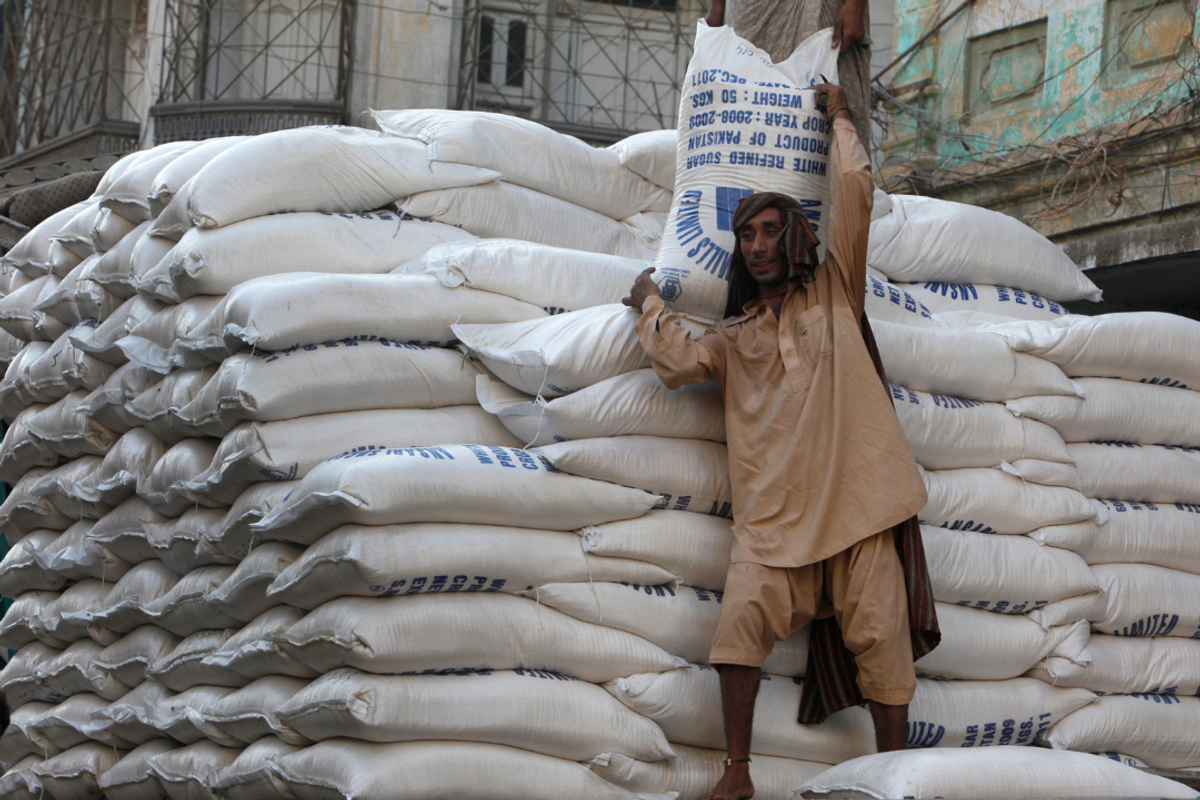Price hike feared as sugar supply by mills tightens in Sindh
Dealers say the commodity is being sold above the government-mandated rate in retail market

Hammad Qureshi
Senior Producer / Correspondent
A business journalist with 18 years of experience, holding an MS in Finance from KU and a Google-certified Data Analyst. Expert in producing insightful business news content, combining financial knowledge with data-driven analysis.

Sugar supply in Sindh has tightened after some millers stopped deliveries to the local market this week, raising concerns among traders about further price hikes, according to commodity traders.
Ex-mill sugar prices — the rate at which mills sell sugar to wholesalers — in Sindh and Punjab have already climbed to PKR 174 to 176 per kilogram, surpassing the government-mandated rate of PKR 169.
In retail markets, consumers are paying around PKR 185 per kilogram, the traders told Nukta.
They warned that if supplies remain restricted, the shortfall could lead to further price hikes in the coming days.
The supply shortage has come at a time when approximately 220,000 tons of sugar, being procured by the government, is expected to arrive at the port in 15 days. Traders noted that the landed cost of imported sugar is estimated at PKR 168 to 176 per kilogram, which is close to the prevailing domestic ex-mill prices.
According to the Pakistan Sugar Mills Association, the country produced 5.8 million tons of sugar last season, but traders said millers’ reluctance to release stocks has created uncertainty in the market.
Pakistan’s sugar sector has come under intense scrutiny in recent months following a sharp price increase of over 25% in retail markets. While millers initially claimed surplus stocks earlier in FY25—prompting the government to allow exports of up to 250,000 metric tons—domestic availability began to tighten by mid-year, triggering a price rally.
The Pakistan government has initiated the import of sugar to stabilize surging domestic prices and ensure sufficient market supply.
The sugar mill owners, most of them being politically connected individuals, have faced allegations of collusion, creating artificial shortages to jack up prices and data manipulation.
Earlier this year, the Competition Commission of Pakistan (CCP) revealed that several major sugar mills had submitted false production figures, drastically underreporting actual output in an attempt to influence market perceptions and secure export permissions.
“Misreporting of sugar production data by industry players distorted supply assessments and directly contributed to artificial price hikes,” the CCP said in a recent statement. “This led to export approvals that did not reflect ground realities.”
Despite being among the world’s top ten sugarcane producers, Pakistan has struggled to maintain consistent sugar availability and price stability due to long-standing structural and regulatory weaknesses, including politicized ownership of over 80 sugar mills with influence over pricing and policy, outdated farming and crushing practices leading to volatile yields, weak inventory tracking, allowing for stock concealment and hoarding, and periodic cartelization, previously documented by the CCP.










Comments
See what people are discussing